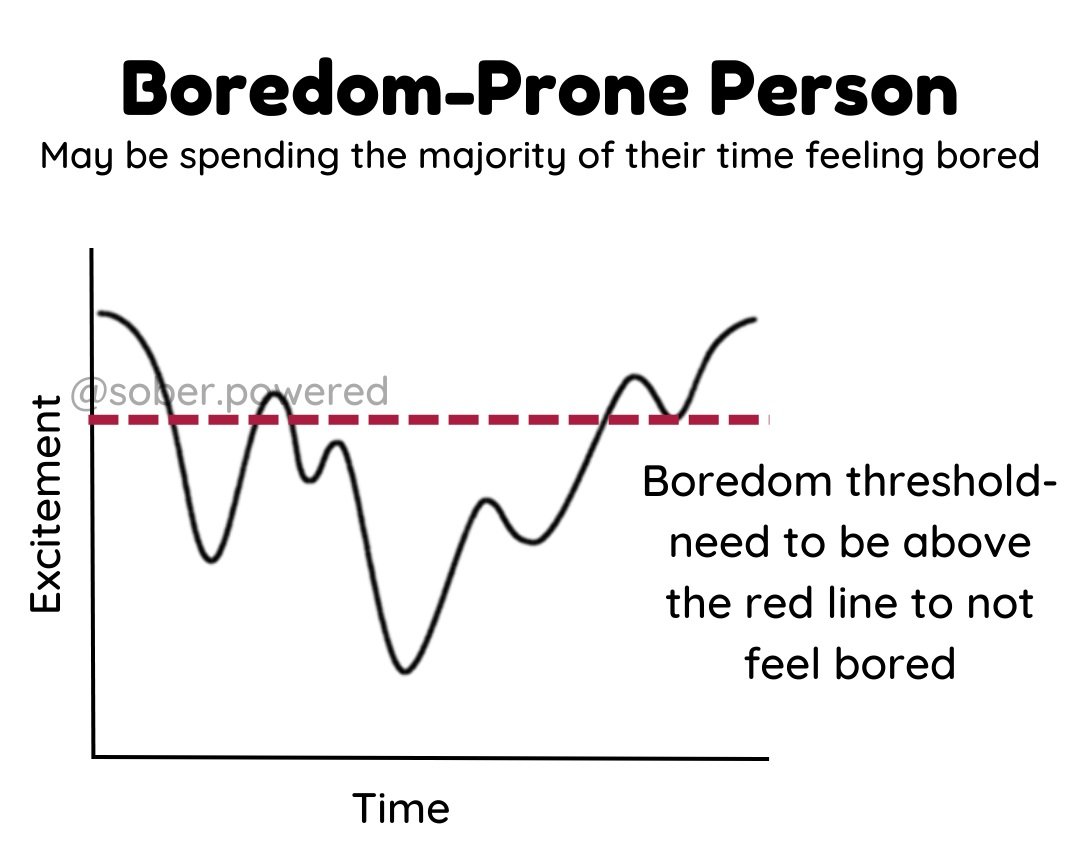Coping with Boredom in Sobriety
Listen to the full episode in your podcasting app: Apple Spotify Other apps
Studies have found that some people are more prone to feeling bored than others. Kids that feel bored more often are 50% more likely to start drinking or using drugs than their peers. We use alcohol to enhance boring experiences, like sitting around watching TV all night or not knowing what to do on the weekend. So instead of having to find something interesting to do, we just drink and immediately start having fun.
Different ways people respond to boredom
Just like with any feeling, we can respond to it adaptively or maladaptively. The maladaptive response would be to drink, emotionally eat, or scroll on your phone. Ways to respond to boredom adaptively are to try a new hobby, read a book, call a friend, go somewhere, write, do some self-care, basically just do something different. Boredom is a signal that what you’re doing at the moment isn’t working for you. It’s okay and normal to feel bored sometimes, it's a part of the human experience, but if you’re bored often then that’s a sign you need to try new things.
Some people are more prone to boredom than others
Research has found that people who are not prone to boredom will find adaptive ways of managing boredom. These people also have more hope for the future than boredom prone people and they have a positive outlook on what their life will look like in a few years. This positive outlook may come from people believing that they have opportunities to make things better for themselves.
Boredom proneness has been described as someone struggling to manage their attention effectively so they turn to maladaptive strategies like alcohol, drugs, or risky sex. We’ve also talked about attentional bias in people with alcohol use disorder in episode 127 of my podcast.
Boredom prone people may not believe that there are better ways to use their time so they turn to high risk behaviors or substances to enhance their experience.
If you’d like to learn more about boredom and how to cope with it in sobriety, then check out episode 134
Boredom is one of the most common triggers for someone who is trying to stay sober. You don’t have to do this alone. Get support in my community, attend AA or work with a therapist.
Sources
Aymery Constant, David Val-Laillet, Anthony Joubert, Katia Foret, Ronan Thibault, et al.. Depressive symptoms are related to boredom proneness in patients receiving hospital care, regardless of alcohol status, lifestyle, or social support. Journal of Health Psychology, 2021, 26 (10), pp.1674-1683.
Weiss, E. et al. Boredom in a time of uncertainty: state and trait boredom’s associations with psychological health during COVID-19. Behavioral Sciences. 2022. 12, 298.

